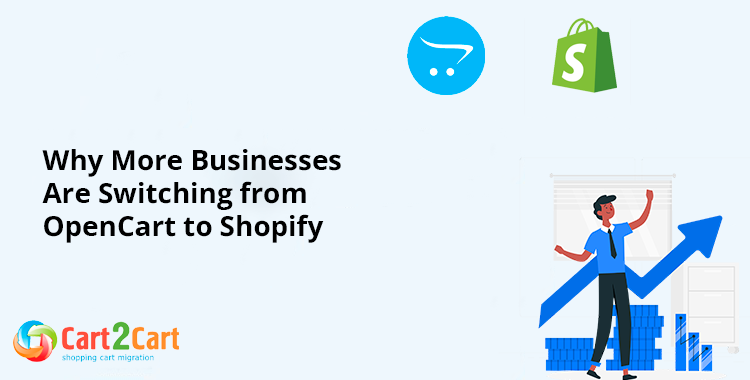 The eCommerce landscape is constantly evolving, and businesses must adapt to stay competitive. One of the significant trends in recent years is the shift from OpenCart to Shopify. While OpenCart has long been a popular choice for online store owners, Shopify's ease of use, scalability, and robust feature set are attracting more businesses. In this article, we will explore the key reasons why businesses are making the move from OpenCart to Shopify and how this transition can benefit your eCommerce store.
The eCommerce landscape is constantly evolving, and businesses must adapt to stay competitive. One of the significant trends in recent years is the shift from OpenCart to Shopify. While OpenCart has long been a popular choice for online store owners, Shopify's ease of use, scalability, and robust feature set are attracting more businesses. In this article, we will explore the key reasons why businesses are making the move from OpenCart to Shopify and how this transition can benefit your eCommerce store.
Ease of Use & User-Friendly Interface
One of the main reasons businesses switch from OpenCart to Shopify is the ease of use. OpenCart requires users to have some level of technical expertise, as it is a self-hosted, open-source platform that demands manual setup, configuration, and troubleshooting. Shopify, on the other hand, is a fully hosted and managed platform, offering a user-friendly interface, intuitive dashboard, and drag-and-drop functionality. This allows business owners to focus more on sales and marketing rather than managing complex technical aspects.Better Customer Support & Maintenance
Shopify provides 24/7 customer support via live chat, phone, and email, ensuring that store owners get immediate assistance whenever needed. OpenCart, being an open-source solution, lacks dedicated customer support, and users often have to rely on community forums or hire developers for troubleshooting. This makes Shopify a much more appealing option for businesses that want reliable assistance at all times.Scalability & Performance
As businesses grow, they require an eCommerce platform that can scale with them. Shopify offers built-in scalability, handling high traffic volumes and large product catalogs without requiring additional server configurations. OpenCart, on the other hand, requires manual optimization, hosting upgrades, and technical expertise to maintain performance during peak sales periods. Shopify’s cloud-based infrastructure ensures that businesses can expand seamlessly without worrying about performance bottlenecks.Security & Compliance
Shopify takes security seriously, offering SSL certificates, PCI compliance, and automatic updates to protect customer data. OpenCart users must manually handle security updates, server configurations, and compliance checks, which can be cumbersome and increase vulnerability to cyber threats. With Shopify’s built-in security measures, businesses can ensure their stores remain safe from data breaches and fraud.


